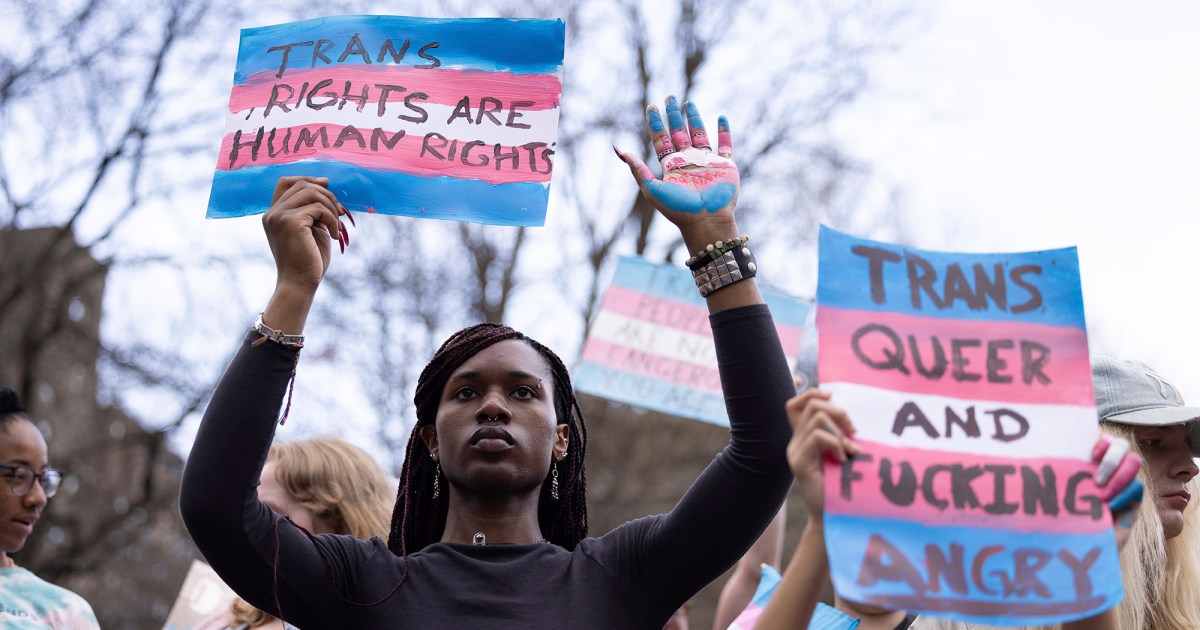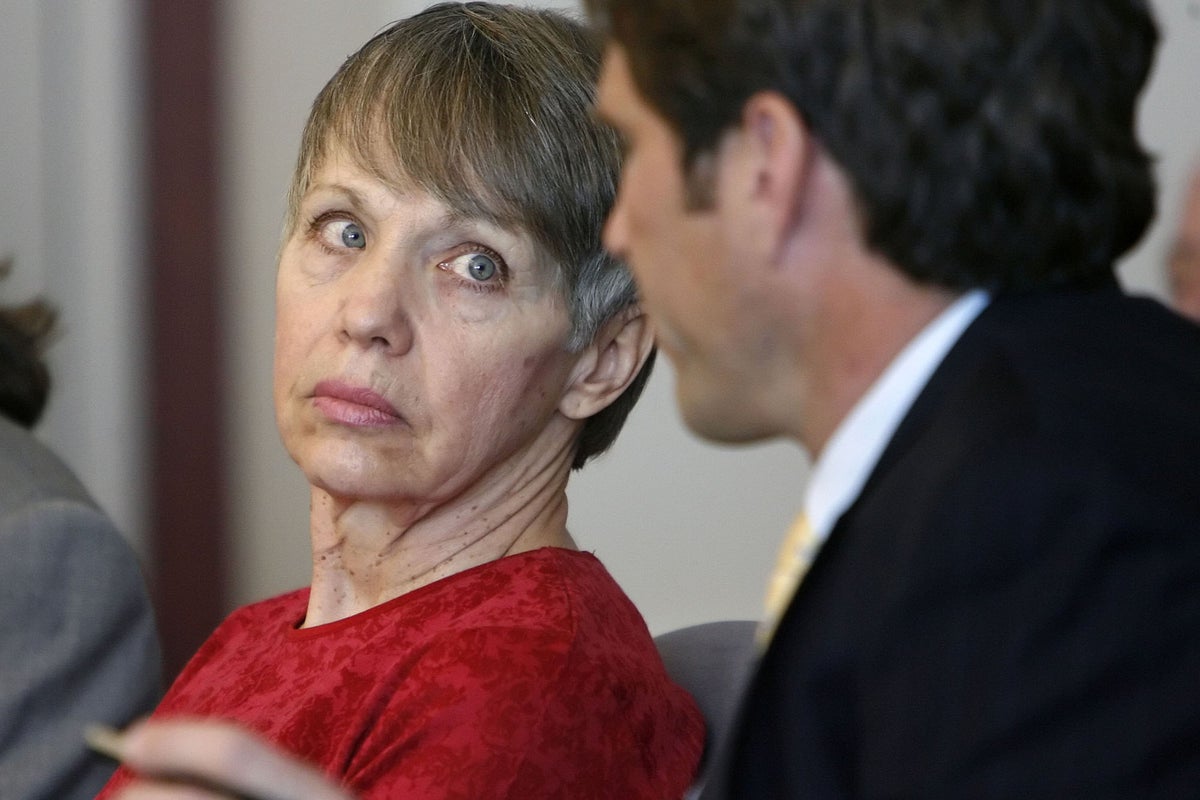Three months ago, Donald Trump’s administration issued an executive order attempting to stamp out standard-of-care medical treatments for transgender children. Doctors who provided such treatments would be prosecuted, it promised; hospitals would lose all federal funding.
Buried in that order was a clause directing the top federal health agency to publish, within 90 days, a review of scientific evidence and “best practices” for treating gender dysphoria in children. That report is finally here: On Thursday morning, the Department of Health and Human Services published a lengthy document that rails against the evidence base for gender-affirming care for youth and the professional associations that have developed standards for treating them. Instead, it advocates for children with gender dysphoria to be treated only with “exploratory psychotherapy”—a phrase sometimes used as a euphemism for anti-trans conversion therapy, as a previous Mother Jones investigation found.
“It’s a post-hoc justification for a political agenda they wanted to pursue anyway.”
While the review does not make formal recommendations on gender-affirming medical treatments, an HHS press release asserts that the document “makes clear” that “science and evidence do not support their use, and the risks cannot be ignored.”
Experts in transgender healthcare promptly slammed the report, whose authors have not been disclosed, as a political, not scientific, document. “It’s a post-hoc justification for a political agenda they wanted to pursue anyway,” says Kellan Baker, executive director of the Whitman-Walker Institute for Health Research and Policy. “You don’t do good science in 90 days with a ‘research question’ that’s determined by political fiat.”
“The document is marked with the signature of politics, which is antithetical to the way that science is normally conducted,” Daniel Aaron, a physician and associate professor of law at University of Utah, wrote in an email.
Existing standards for trans youth health care, issued by the World Professional Association for Transgender Health (WPATH), recommend that kids with gender dysphoria receive psychotherapy, but a small minority of trans youth, with the consent of their parents, are also given gender-affirming medical treatments that can include puberty blockers for children who have entered puberty and hormone therapy for teens. Surgery is rare and typically reserved for the oldest adolescents.
Yet the HHS report, in the first paragraph of its introduction, misrepresents the number of youth receiving this care, claiming that “many” of the growing number of transgender teens are being treated with hormones and surgeries.
Trans youth were, of course, an outsized focus of Trump’s campaign—and since reassuming office, he’s issued policy after policy aimed at undermining transgender people’s participation in public life. While legal challenges have temporarily stymied some of Trump’s attacks on trans healthcare, other policies have taken effect. The Department of Veterans Affairs is phasing out hormone therapy for trans veterans. Millions in research funding for trans health care has reportedly been canceled. In April, the Justice Department set up a snitch line for anyone to report providers of gender-affirming medical care. Last week, Attorney General Pam Bondi directed her underlings to open criminal investigations against physicians for “female genital mutilation” of trans youth.
Baker predicts that the new HHS report will be used to bolster current and future anti-trans litigation, and to argue that drastic policy changes are merited. “It will be relied upon, it will be cited, every time the government seeks to investigate, prosecute, defund healthcare providers and healthcare institutions that are caring for transgender young people,” Baker says. “It will probably be used in efforts to criminalize parents as well.”
Aaron concurs. “The report will likely be used to restrict transgender health care and to sow confusion among the public.”
Beyond its overtly political nature, experts say the document does not meet scientific standards. The authors of the report, described by the White House as “a team of eight distinguished scholars,” are unnamed—“to help maintain the integrity of this process,” HHS’ press release claims.
“That’s unusual and not typical of the medical literature,” says Alex Dworak, a family medicine physician in Omaha, Nebraska who treats transgender patients. The executive summary, Dworak says, contains inaccuracies, misleading language, and misrepresentations of the kind of care he provides to transgender patients. For one, Dworak points out, the summary claims that “no independent association between gender dysphoria and suicidality has been found”—which Dworak calls “flatly incorrect,” citing a systematic review that found the opposite.
The report also includes a lengthy explainer on Christine Jorgensen, questionable stories about trans health care “whistleblowers,” and a section arguing that the very idea of “gender identity” is undefinable. “It reads like an anti-trans fever dream,” Baker says.
“There’s nothing unusual about the types of studies that we do in trans health—or the level of evidence that underpins [it].”
Baker describes one of the review’s main critiques—a lack of “high-quality” evidence for the treatments given to transgender youth—as a “classic example of using jargon to try to distract and mislead.” Evidence is described as “low” or “high” in quality based on factors like study size and type, as most commonly assessed by a medical research standard known as GRADE. In fact, studies have shown that a very low percentage of treatments across all fields of medicine are backed by what the report calls high-quality evidence. Designing randomized controlled trials—an example of such evidence—is both practically and ethically impossible when studying pediatric and transgender healthcare, experts like Baker maintain. “The evidence for the standard of care for trans people is as strong as the evidence across myriad other areas of medicine,” Baker says. “There’s nothing unusual about the types of studies that we do in trans health or the level of evidence that underpins the standards of care.”
Gordon Guyatt, a professor of medicine and expert in research methods at McMaster University in Ontario, Canada, was one of the key developers of the GRADE approach. Guyatt wrote in an email that the report accurately classifies the evidence around gender-affirming care for youth as low or very low in certainty, but that its discussion of ethical issues was “unbalanced.”
The report “suggests that adolescents should be denied the gender affirming therapies under consideration and that people shouldn’t be allowed to do research to address the possible outcomes,” Guyatt wrote. “This seems unbalanced to me and raises the issue of how this report came about, how the team that put together the report was chosen, and the influence that players in the current administration had on the report.”
Dworak emphasizes that the report represents neither established law nor clinical standards—and won’t affect the treatment he provides to his patients. “I want my patients and everyone who’s reading this to know: You are not alone,” he says. “There are people out there who do care for you and think you are important and valuable and want you to survive and thrive.”















